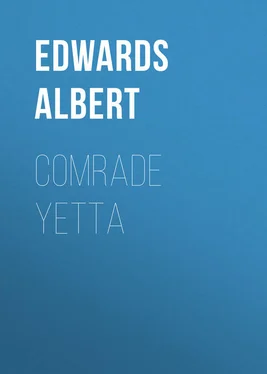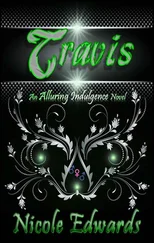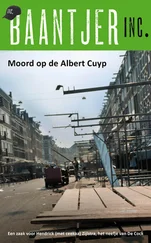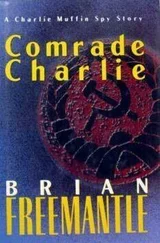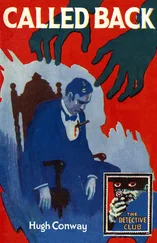Albert Edwards - Comrade Yetta
Здесь есть возможность читать онлайн «Albert Edwards - Comrade Yetta» — ознакомительный отрывок электронной книги совершенно бесплатно, а после прочтения отрывка купить полную версию. В некоторых случаях можно слушать аудио, скачать через торрент в формате fb2 и присутствует краткое содержание. Жанр: foreign_antique, foreign_prose, foreign_sf, на английском языке. Описание произведения, (предисловие) а так же отзывы посетителей доступны на портале библиотеки ЛибКат.
- Название:Comrade Yetta
- Автор:
- Жанр:
- Год:неизвестен
- ISBN:нет данных
- Рейтинг книги:4 / 5. Голосов: 1
-
Избранное:Добавить в избранное
- Отзывы:
-
Ваша оценка:
- 80
- 1
- 2
- 3
- 4
- 5
Comrade Yetta: краткое содержание, описание и аннотация
Предлагаем к чтению аннотацию, описание, краткое содержание или предисловие (зависит от того, что написал сам автор книги «Comrade Yetta»). Если вы не нашли необходимую информацию о книге — напишите в комментариях, мы постараемся отыскать её.
Comrade Yetta — читать онлайн ознакомительный отрывок
Ниже представлен текст книги, разбитый по страницам. Система сохранения места последней прочитанной страницы, позволяет с удобством читать онлайн бесплатно книгу «Comrade Yetta», без необходимости каждый раз заново искать на чём Вы остановились. Поставьте закладку, и сможете в любой момент перейти на страницу, на которой закончили чтение.
Интервал:
Закладка:
"I know your history. I know how the ages of oppression have bent your backs. I know your poverty. But did you come to America to transplant here these old traditions of servitude? No. You came in search of a broader life, a larger measure of Freedom. Well. Just like every one else you'll have to fight for it. You've got to sacrifice for it. You've got to be ready to die for it.
"What are the most servile, down-trodden, abject trades in the city? The sweated garment trades. Who works in them? Jews. Where are the rottenest, vilest tenements? On the East Side. Who lives in them? Jews. You are the worst-paid, hardest-driven, least-considered people in New York. You are willing to work in sweat-shops. You consent to live in dumbbell tenements. You submit to injustice.
"You haven't joined the fight, although the Jew can fight when he wants to. I've no quarrel with these 'skirt-finishers.' But the fact remains that – with a few glorious exceptions – the great mass of your people have preferred a new serfdom to the trouble of earning Liberty. The Chosen People are watching the combat from a safe distance.
"This may sound as if I was a Jew-hater. I'm not. But I love Liberty. The fight is world-wide, international, interracial. It's bigger than Jew or Gentile. It's for the Freedom of Humanity. And the people who are willing to be slaves are more dangerous enemies than those who want to be tyrants. It's rather good fun fighting oppressors. But it's Hell trying to free ourselves from slaves."
His words inflamed Yetta's imagination. How often she had heard her father explain the misery of their people by the lack of training in the habits of freedom! He had felt – and it had been his keenest sorrow – that the Chosen People were falling far short of their high calling. She remembered his solemn talks with her, his explanation of why he had wished her to study. He wanted her to be an American – a free woman.
Longman stopped. Instead of applause there were angry murmurings. But his words had sounded like the Ultimate Truth to Yetta. Why did they not greet his message with a cheer. The wine accomplished its miracle. Without its burning stimulation she would have been a cowering bundle of timidity before that sullen audience. But many good things can the kindly Fates conjure out of vile beginnings. The champagne which was to have been her utter undoing gave her courage. She got up as one inspired.
"What he says is true. We Jews don't fight for Freedom like we ought to. Look at me. My father loved Liberty. Perhaps some of you remember him. His name was Rayefsky. He used to keep a book-store on East Broadway. He talked to me about Liberty – all the time, and how we in this country ought to do our share. And then he died, and I went to work in a sweat-shop. Vests. I forgot all he had told me. What right have I got to be free? I forgot all about it. I ain't been vigilant. Nobody's talked to me about Liberty – since my father died. I'm" – her voice trembled a moment – "Yes, I'll tell you. I'm speeder in my shop. I'm sorry. I didn't think about it. Nobody ever told me what it meant before. If there's a union in my trade, I'll join it. I'll try not to be a slave. I can't fight much. I don't know how. I guess that's the real trouble – we're not afraid – only we don't know. I ain't got no education. I had to stop school when my father died. I was only fifteen. But I'll try not to make it harder for those that are fighting. I think…"
But her excitement had burned out the stimulation of the wine. She suddenly saw the sea of faces. It turned her from The Voice of her Race into a very frightened young woman, who knew neither how to go ahead nor how to sit down.
"That's all I've got to say!" she stammered. "I'll try not to be a slave."
Her simple, straightforward story, above all her self-accusation, turned the spirit of the assembly. "That's right," a number of men admitted, and there was considerable applause. She was too confused, too frightened at her own daring, to realize that she had saved the meeting from failure. But Miss Train, who never lost her presence of mind, recognized the Psychological Moment to end the speech making, and she signalled to the orchestra to begin the dance music. Every one got up and began, with a great hubbub, to move the benches back against the walls.
But Harry Klein was in no mood for dancing. In this unfamiliar, disturbing atmosphere, he also was discovering that his companion had a new and unsuspected side. It was something he did not understand, with which he was unprepared to deal. Everything seemed conspiring to tear her away from him. There were limits even to his patience. He must get her out on the sidewalk – into his own country.
"Come on," he said gruffly, taking firm hold of her arm. "I've had enough of this. Come on, I say. I ain't going to listen to hot air all night."
In her moment of exaltation, Yetta had almost forgotten the existence of her fiancé. His brusque manner broke into her mood with a suddenness which dazed her. He had led her down the hall, nearly to the door, before she could collect her wits. Beyond the door was the dark night and helplessness and unknown fear. Here in the hall was the woman who had been in the Settlement, the woman of whom she was not afraid.
"Wait," she said. "I want to talk to Miss Train."
In all that hostile environment, Miss Train's silent disdain had been the most outspoken. Harry would rather have had Yetta talk with Rachel. Rachel at least was afraid of him.
"Come on," he growled, and jerked her nearer to the door.
"No, no. I want to stop."
"Don't you begin to holler," he hissed, with a rough jerk. He tried to subdue her with his hard eyes. "Come on. Don't you make no row. Don't you holler."
They were close to the dark doorway now, and somehow Yetta could not find breath to scream out her fright. He pushed her roughly out into the vestibule. But his progress came to a sudden stop. Some one caught him by the collar and swung him off his feet.
"Not so fast, my man." It was Longman. "Where are you trying to take this young lady?"
Harry's free hand made an instinctive movement towards his hip pocket, but Longman's hand got there first.
"Oh, ho!" he said softly. "Concealed weapons?"
Jake nearly wept with rage. He – the president of a political club, the dreaded leader of a murderous gang – held up in such a manner for the mockery of a lot of working-men!
"I asked you where you were taking this young lady," Longman repeated.
"I brought her here," Jake snarled, trying desperately to regain his sang froid . "I guess I can take her away when she's tired of the show."
"Yes. Of course you can take her away, if she wants to go. But you can't if she doesn't. I didn't catch your name," he continued, turning to Yetta, "but I'd be very glad to see you safely home, whenever you want to go. Would you prefer to go with me or with this – " he looked first at the wilted desperado in his grip and then at the little circle of men who had gathered about. "He's a Cadet, isn't he, comrades?"
There was a growl of assent.
"You ain't going to throw me down now, are you, Yetta," Jake pleaded, the thought of losing her suddenly undoing what he considered his manhood, "just because this gang has picked on me."
"Of course you can go with him if you want to," Longman said kindly. "But really I think you'd better not. You won't do much for Freedom if you go with him."
"I'll stay," Yetta said simply.
And then Jake began to curse and threaten.
"Shut up," Longman said laconically, and Jake obeyed.
"Here," he continued to some of the men, "hand him over to the police. Be careful; he's got a gun in his pocket. Make a charge of 'concealed weapons.' And – what is your name? – Rayefsky. Thanks. Miss Train wanted to speak to you – that's why I happened along just now. Won't you come and we'll find her."
Читать дальшеИнтервал:
Закладка:
Похожие книги на «Comrade Yetta»
Представляем Вашему вниманию похожие книги на «Comrade Yetta» списком для выбора. Мы отобрали схожую по названию и смыслу литературу в надежде предоставить читателям больше вариантов отыскать новые, интересные, ещё непрочитанные произведения.
Обсуждение, отзывы о книге «Comrade Yetta» и просто собственные мнения читателей. Оставьте ваши комментарии, напишите, что Вы думаете о произведении, его смысле или главных героях. Укажите что конкретно понравилось, а что нет, и почему Вы так считаете.
